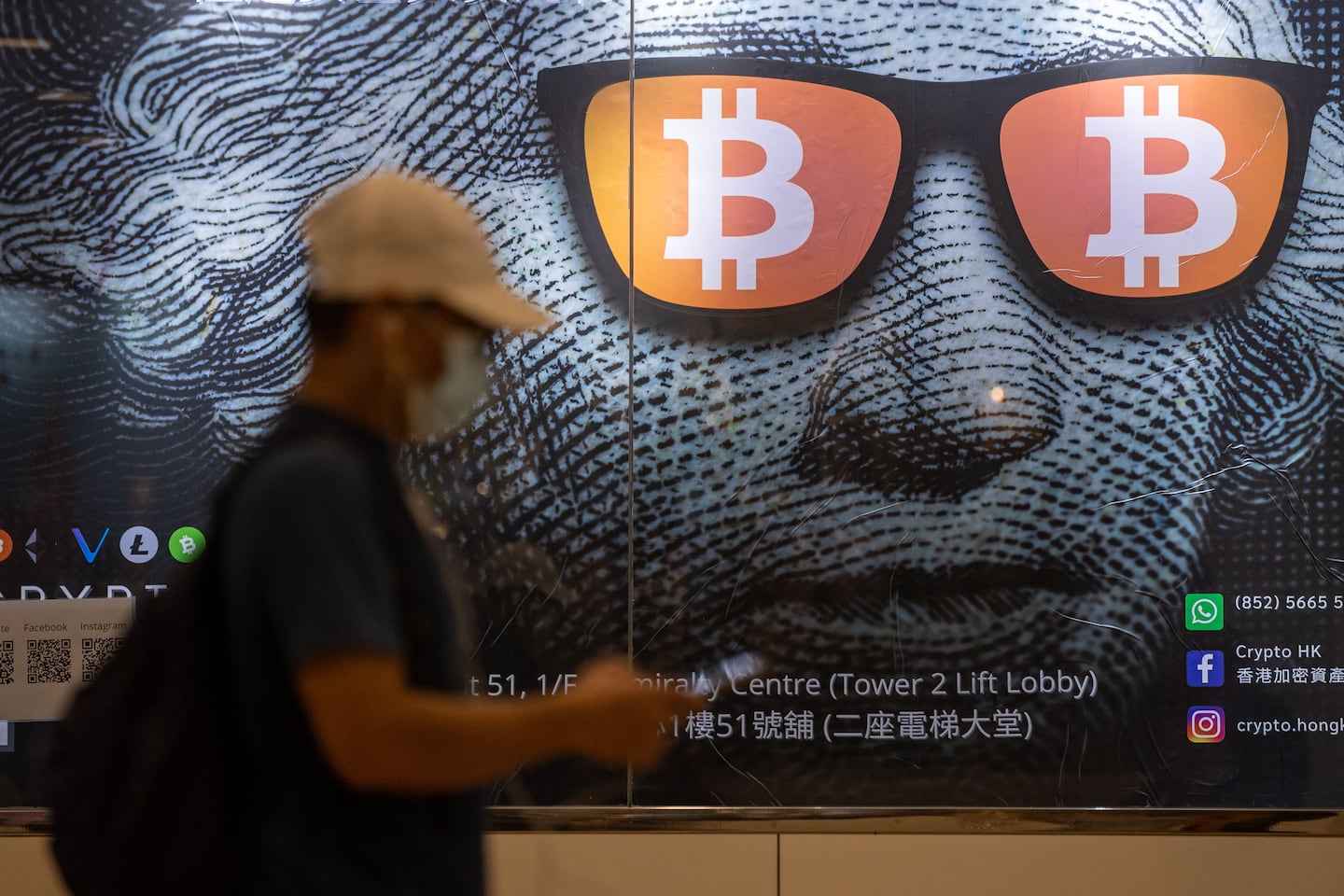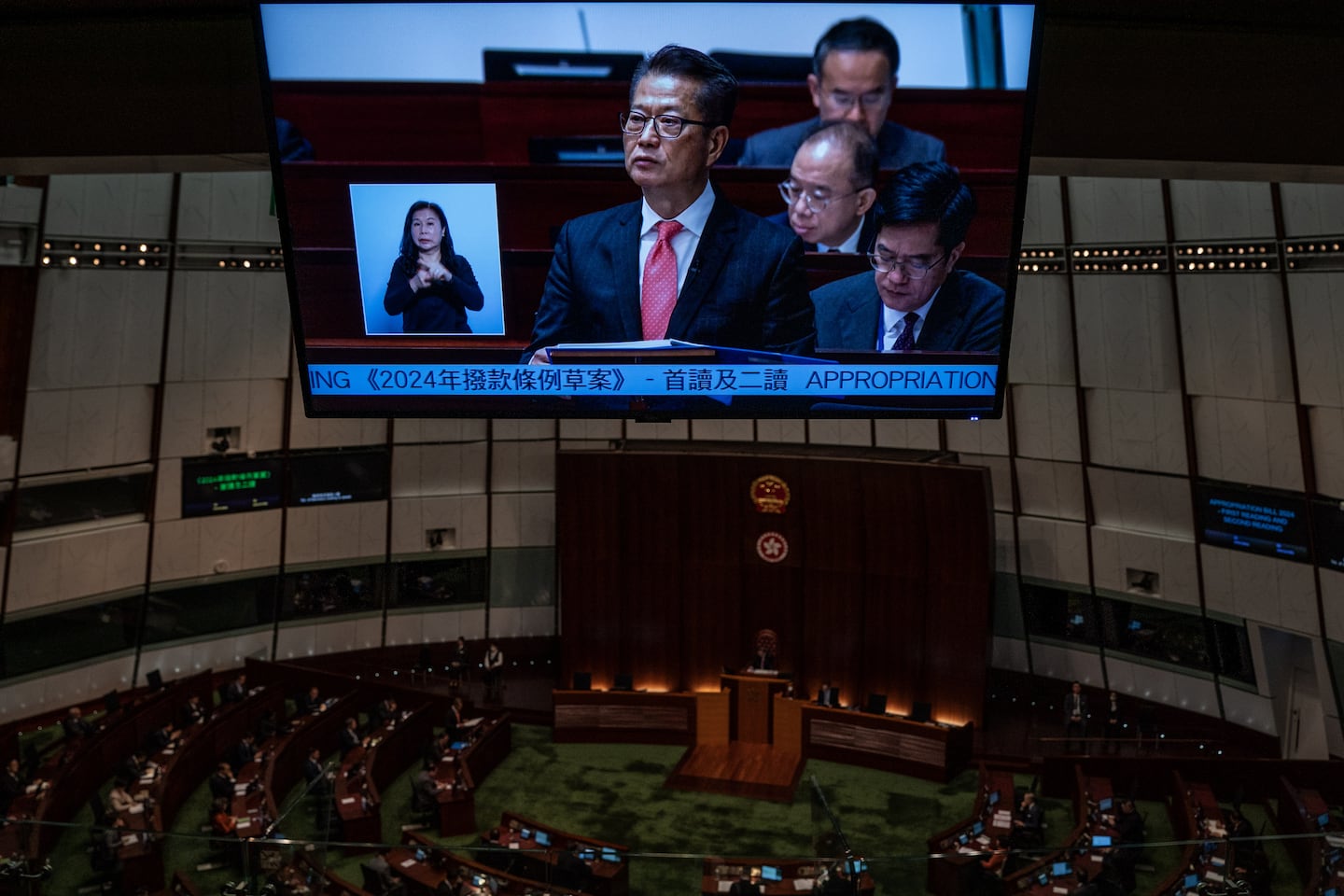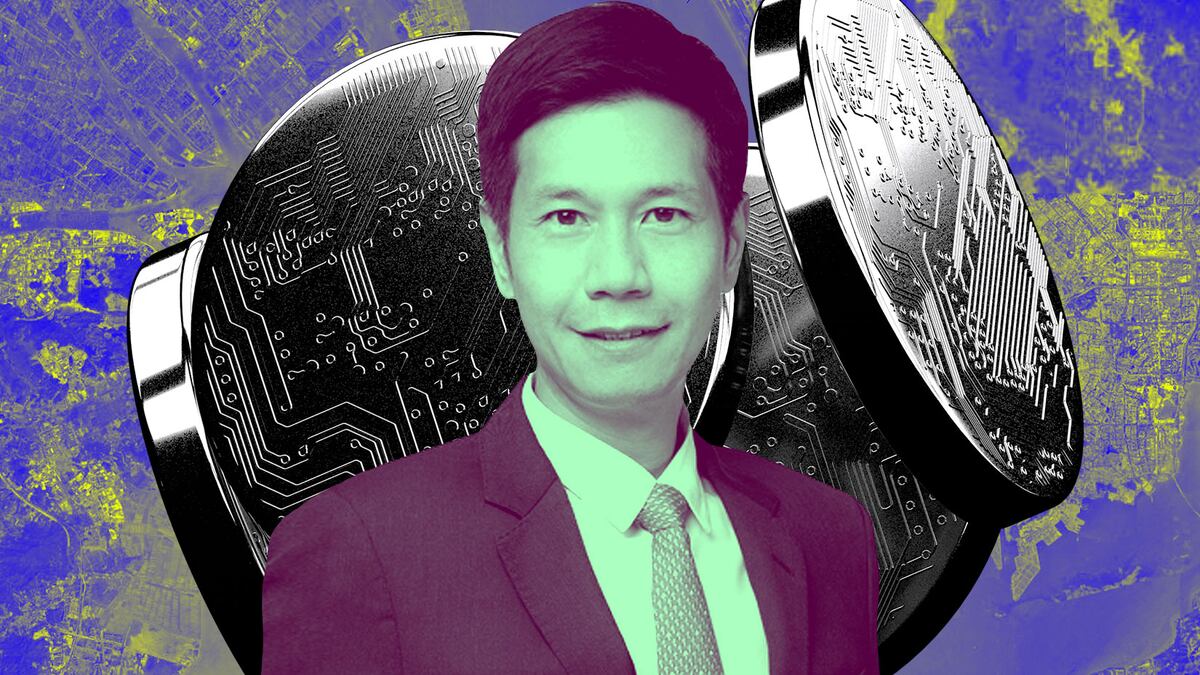- Hong Kong residents are souring on crypto as suspicious exchanges take their toll.
- Legislative Council Member Ng tells DL News about his multi-pronged plan.
- Mainland Chinese ventures are turning to Hong Kong despite investors' mounting wariness.
Over coffee this week, a staff member from one of the big exchanges in Hong Kong told me about their struggle to hire for a new position.
They thought they’d finally found a suitable candidate, a young college graduate, but she rejected their offer at the last minute.
It turned out the candidate’s mother had put her foot down and told her daughter not to work for a scam company. In her view, every crypto company was a fraud.
It’s not just concerned mothers who have a problem with Bitcoin and its ilk in Hong Kong.
“We need to separate between a scam and regular web3 business,” Johnny Ng, a member of Hong Kong’s Legislative Council, told DL News in an exclusive interview.
“It’s very important because even some government officials feel that every crypto company is a scam. That’s very dangerous.”
And it’s a pervasive vibe in a metropolis that appears to be increasingly wary of crypto, even as its own government tries to promote web3.
High profile disasters
Last October, a survey from Hong Kong University of Science and Technology found that 41% of people were reluctant to hold cryptocurrencies in the city, a 12 point increase in just a few months.
Only 20% were interested in holding them.
There’s little mystery behind the shift — several high profile disasters have cast a pall over Hong Kong’s efforts to revive its crypto cred.
‘We have to build customer confidence, and knowledge is important. I think we need to do it step-by-step to balance it.’
— Johnny Ng, Hong Kong Legislative Council
In the last year, investors have lost at least US$200 million to JPEX, a mysterious crypto exchange with unknown owners which halted withdrawals in September and is now under investigation by Hong Kong police.
Last month, Hong Kong-based BitForex transferred US$57 million in user funds from its coffers and hasn’t been heard from since.
My search for the firm at the addresses listed on its company filings turned up empty offices in industrial complexes and strip malls.
But Ng, a prime candidate as Hong Kong’s “web3 politician,” has a plan.
Anti-scam insurance
He’s pushing for new measures to encourage web3 companies across not just Hong Kong, but neighbouring Guangdong province and Macau, to adopt best practices and reassure investors.
He also wants to introduce new measures such as anti-scam insurance, and more public education to protect Hongkongers from scammers.
This week Ng has been advocating his ideas at the Two Sessions in Beijing, China’s annual plenary sessions for the National People’s Congress and the Chinese People’s Political Consultative Conference.
I met Ng in an oversized conference room in the Citic Tower, an office complex where city lawmakers have pitched camp while the Legislative Council building is being renovated.
A square silver conference table snaked around the room parallel to the walls.
We sat at one corner. His assistant sat a few seats down. Two interns with stickers on their laptops sat at the other corner. Otherwise, the office was silent.
Ng has been wrestling with a dual role in his native city.
On one hand, he’s encouraging startups and efforts to bring web3 firms to Hong Kong. On the other, he’s also the person Hongkongers reach out to when they get caught up in a crypto scam.
The dilemma
Ng was elected in 2022.
Reinvigorating Hong Kong’s tech scene and creating more opportunities for the city’s youth is a key plank in its platform.
In a sense, Ng represents the dilemma faced by officials across the world as they embrace web3 — how do you balance innovation with consumer protection?
After graduating with a degree in engineering from the Hong Kong Polytechnic University in the 1990s, Ng founded a string of tech companies, including one that developed biometric facial recognition technology.
Ng has also been a key voice in encouraging young people to become entrepreneurs and pursue jobs in tech. He became interested in crypto in 2016.
Two crypto industries
There are two crypto industries in Hong Kong. There’s companies like JPEX.
“They’re police matters,” Ng explained.
Then there’s the other industry, which he calls “the good one.”
The trick is trying to encourage the latter while clamping down on the other.
“We have to build customer confidence, and knowledge is important. I think we need to do it step-by-step to balance it,” Ng told me.
For him, building up crypto products and services in Hong Kong is going to be a long process. It’s something of a rolling back of the crypto landscape compared to a few years ago.

Hong Kong was the birthplace of the crypto derivatives industry, and it’s a favourite spot for conferences, and many of its neon-lit streets are lined with colourful but questionable OTC outlets.
Many huge crypto firms got their start in Hong Kong, including BitMEX and OKX.
Sam Bankman-Fried’s FTX was also based here for a couple of years before decamping for the Bahamas in the runup to its collapse in November 2022.
Now Hong Kong is slowly bringing order to its unruly crypto scene.
Twenty digital assets platforms have applied for licences from the Securities and Futures Commission, excluding two firms that already have them.
Those that didn’t apply before the end of February have been told in no uncertain terms to shut down their retail operations in Hong Kong by the end of May.
What they can offer to retail clients is limited: no crypto futures, no derivative products.
“At the very beginning, we can only trade the big ones like BTC and ETH, large coins with a huge market liquidity,” said Ng.

He doesn’t rule out relaxing the rules though.
As the market gets more mature and customer education improves, Ng said rules could be reevaluated. “But we need to do it step-by-step,” he said.
Ng has already submitted one measure to create a financing platform for web3 small and medium sized enterprises in the Greater Bay Area, the region encompassing Guangdong Province, Hong Kong and Macau.
As it happens, China has proven to be a popular source of web3 projects for Hong Kong.
Chinese-run startups are planting roots in places like the city’s tech hub, Cyberport.
Hong Kong vs Singapore
But Hong Kong is also competing against Singapore, which is having more success in attracting Chinese finance and tech firms.
Ng said that he also wants to see measures that will allow Mainland Chinese tech companies to issue tokens on licensed exchanges in Hong Kong, though he declines to go into further details just yet about what that process would look like.
Since the collapse of JPEX, Ng has also been calling for greater educational outreach to the public about scams in the crypto market, and more broadly in investments.
Anti-scam day
He is running an anti-scam day at the end of this month and is pushing for more education at the district level, which involves going out to communities and running programs and workshops to increase residents’ understanding of scammers’ tactics.
He also proposes borrowing an idea that is growing in popularity in China: anti-scam insurance.
Ng wants the government in Hong Kong to work with local insurers to set up similar products.
Companies such as Ant Insurance and Sunshine Insurance offer this service on the mainland by having applicants take a test on scams and then insuring them if they fall victim to one.
‘We reach so many victims. They have only one request, to get back some money.’
— Johnny Ng
“When you pass, you can buy this insurance. And the test is very important to let you equip yourself with the knowledge of how to prevent a scam,” he said.
And while he also wants to see more cross-border cooperation to tackle scams at the source in places like Southeast Asia, it’s important to get investors to reckon with the risks.
Once scammed in crypto, it’s virtually impossible to get recourse.
“We reach so many victims. They have only one request, to get back some money,” he said.
Got an Asia crypto story? Get in touch with DL News’ Asia Correspondent Callan Quinn at callan@dlnews.com.









